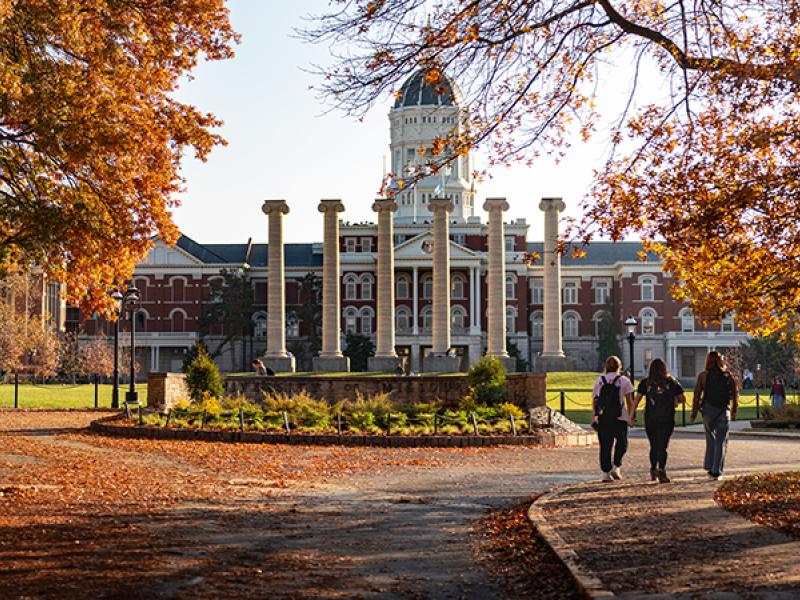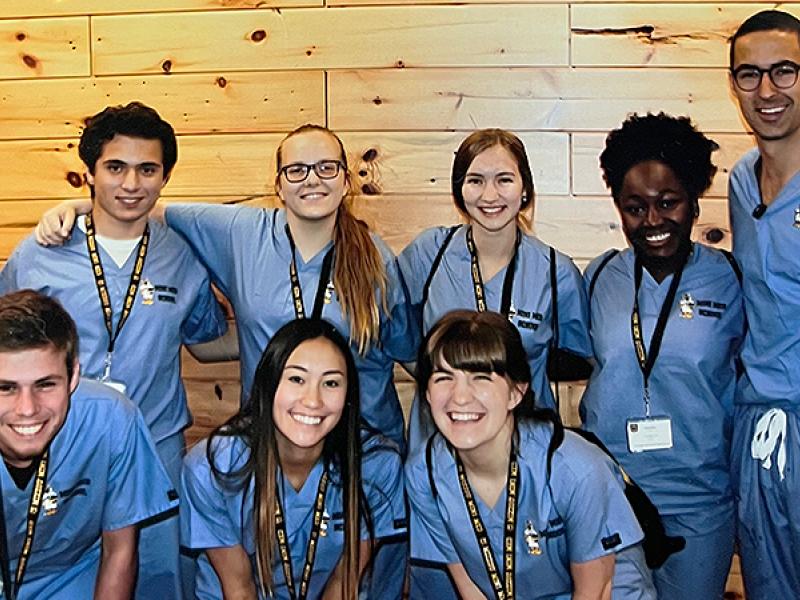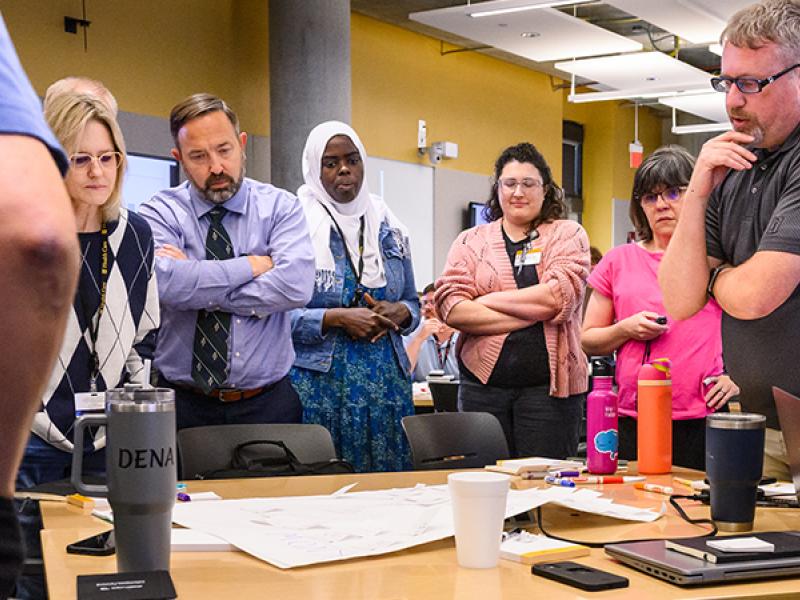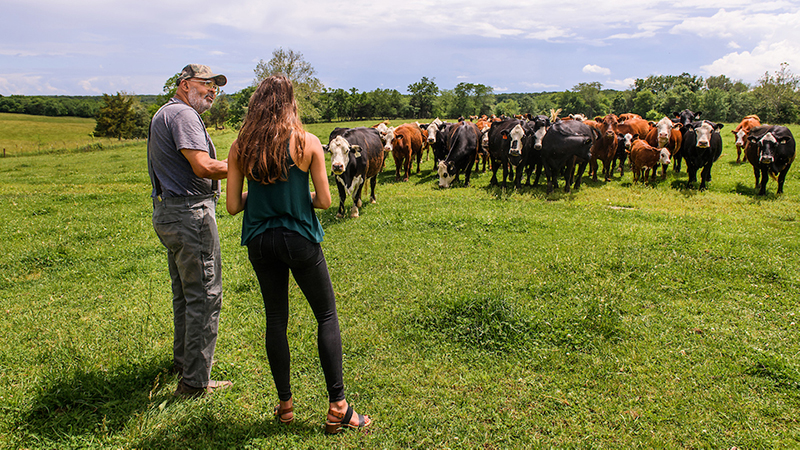
Thomas Cooper, MD ’78, removed the toothpick from his lips, cupped a hand around his mouth and called out “Haw-HAW” to get the attention of the cattle grazing in the distance on his farm outside of Fulton, Missouri.
He wanted to give his special guest a closer look at the herd.
The guest, Michela Fabricius, is a third-year MU medical student from Los Angeles who was getting her first taste of Missouri farm life. As the livestock ambled in a more-or-less orderly fashion to the feeding pen and chowed down from troughs filled with corn, Fabricius hung on every word as Cooper pointed out the traits of the Angus and Hereford breeds, offered good-natured laments about cattle prices and vowed that this was definitely his last year of farming.
It is a vow, he admitted with a laugh, that he makes every year.
The retired doctor — wearing a ballcap, suspenders and soiled shoes that he’s under strict orders to remove before setting foot on the carpet at home — did not seem to have much in common with Fabricius, who was stepping carefully around the pasture in her open-toe sandals.
But they have a connection.
Cooper and his wife, Sharlyn, decided decades ago to donate to Lincoln University, where they met as undergraduates in the 1960s, and to the University of Missouri School of Medicine, where he trained to become a family medicine and emergency medicine doctor. They started giving back to the next generation of students before they had even paid off Cooper’s own student loans. Fabricius is the current recipient of the Thomas J. and Sharlyn Cooper Medical Student Scholarship Fund.
“My wife and I had come from humble means, and we had a lot of help along the way,” Cooper said. “The idea was that someone had helped us, and we just wanted to help someone. We didn’t have much to give, but we would give it religiously.”
Fabricius shares the Coopers’ generous spirit. As a child, she volunteered in the soup kitchen her mother operated and took to heart one of her mom’s favorite sayings: “If you’re not living life for others, you’re not living life right.” By second grade, Fabricius knew she wanted to help others as a doctor.
She applied to the MU School of Medicine partly because her fiancé — now husband — had relatives in Columbia.
“I had never been to Missouri before my interview and just put it on the list initially, but when I interviewed, I fell in love with ‘Midwest nice,’ ” Fabricius said. “It’s really a thing. Anita Berry in the admissions office had the brightest smile and was so welcoming and kind, and everyone I met really wanted to get to know me as a person rather than just checking the list of applicant requirements. That was one of the biggest drivers of me coming here. I loved the people at the school.”
She got the same warm reception from Cooper, who kept her laughing and learning as he gave her a crash course on the flora and fauna of his 100-acre property from the driver’s seat of his utility vehicle.
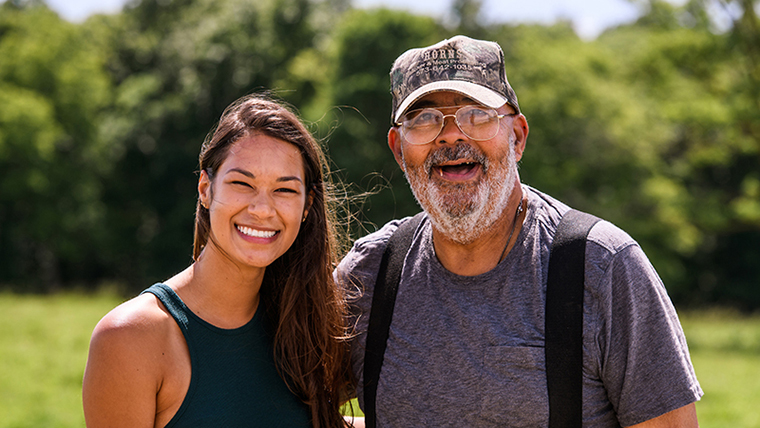
A vision problem caused Cooper to retire as a physician in 2002, but he stayed involved in medicine and shared his knowledge by teaching Introduction to Patient Care at the MU School of Medicine until 2017, when he decided it wasn’t safe to keep driving to Columbia with his declining eyesight.
He has yet to retire from farming. Cooper grew up as the 12th of 12 children on a family farm in Missouri’s Bootheel. When he and Sharlyn started raising their own four children, he realized he missed farm life, so he bought some land and enlisted his kids to help him raise cattle so they could make a little spending money. The kids are grown now and Cooper no longer has much help, but he can still sling heavy bags of feed corn, mend fences and manage his herd of 80 cattle.
“You don’t have to be able to see to farm and lose money,” he joked. “When you circle the sun 75 times, your health diminishes a little bit, but I still want to do things to help.”
His scholarship has been a great help to Fabricius, who envisions a career that merges her interests in infectious diseases and health policy.
“Aside from friends and family and those immediate people in my life, it’s like there’s someone else who believes in me,” Fabricius said of Cooper. “There’s someone else who was able to see something in my application and see that I’m going to be a great physician and support me in that journey. It’s nice to know that someone has your back.”



